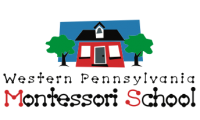“The greatest gifts you can give your children are the roots of responsibility and the wings of independence.”
~ Denis Waitley
 Ages 3-6 Primary School Program
Ages 3-6 Primary School Program
WPMS is a dual licensed school certified by the PA Department of Education & PA Department of Public Welfare
WPMS is also affiliated with the American Montessori Society
Program Options:
Primary School Day & Kindergarten Programs (8:30 am-3:15 pm)
A la Carte care options: Before Care 7:30-8:30 AM, Aftercare 3:15-6PM & Additional Calendar Days when the school is closed
The three to six year program is a unique preschool experience; it is a complete program through the kindergarten year. Mixed age grouping is a basic tenet of the Montessori Method which means that children 3-6 years of age are in the same classroom together. Students work at their own level of competence. At the same time, the younger student has the opportunity to challenge her/himself in relating to older students and the older student can reinforce her/his own learning by guiding a younger student through a work.
Children construct knowledge by interacting with the environment (classroom of materials). The prepared environment includes practical life, sensorial, math and language areas. Children also enjoy Friday special activities in Spanish language and culture, physical education, and music classes. Classes meet five days a week.
This cycle of learning provides an enriched environment for the age-appropriate development in all areas of the classroom. The classroom is divided into areas:
- Practical life/daily living
- Sensorial
- Language development
- Math
- Geography
- Science
- Art
New children spend most of their time in the daily living and sensorial areas of the room. The child completes an entire work cycle with one material before moving on to the next.
